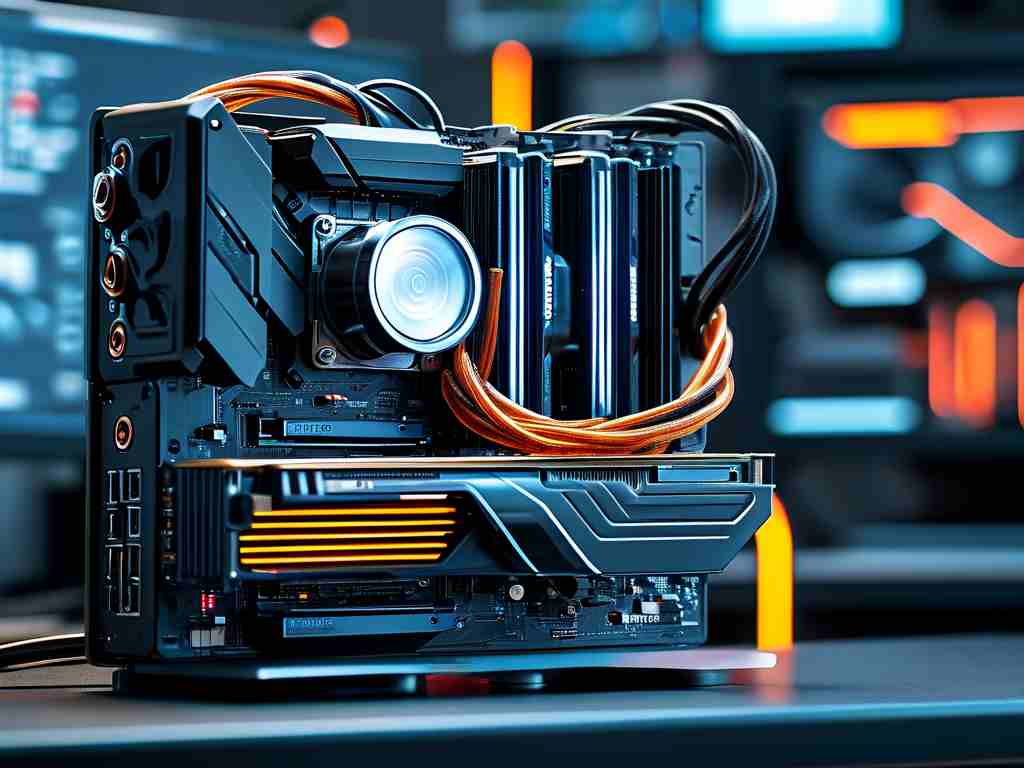In the fast-paced world of financial markets, the role of a Spot Trading Data Engineer has emerged as a critical bridge between raw market data and actionable trading insights. This specialized engineering discipline combines technical expertise with financial acumen to process, analyze, and optimize real-time trading data. As global markets grow increasingly interconnected and algorithmic trading dominates liquidity, the demand for professionals who can manage the complexities of spot trading data has skyrocketed.

Understanding Spot Trading and Data Engineering
Spot trading refers to the immediate exchange of financial instruments, such as currencies, commodities, or securities, at current market prices. Unlike futures or derivatives, spot transactions settle "on the spot," requiring real-time data accuracy and rapid execution. For data engineers, this translates to a unique challenge: capturing, processing, and storing vast streams of market data with minimal latency.
A Spot Trading Data Engineer designs systems to handle tick-by-tick price updates, order book changes, and trade execution logs. These systems must operate at scale, often processing millions of events per second across global exchanges. The engineer’s toolkit includes distributed computing frameworks (e.g., Apache Kafka, Flink), time-series databases (e.g., InfluxDB), and cloud infrastructure (e.g., AWS, GCP).
Key Responsibilities
- Data Pipeline Development: Building robust pipelines to ingest raw market feeds from exchanges, normalize formats, and eliminate anomalies. For example, reconciling timestamps across time zones or handling sudden spikes in trading volume during market shocks.
- Latency Optimization: Reducing data processing delays is paramount. Engineers employ techniques like in-memory caching, parallel processing, and hardware acceleration (e.g., FPGAs) to shave microseconds off data transmission times.
- Real-Time Analytics: Integrating machine learning models for predictive analytics, such as detecting arbitrage opportunities or predicting short-term price movements.
- Compliance and Security: Ensuring data integrity and adherence to regulations like MiFID II or GDPR. This includes encrypting sensitive trade data and auditing data access patterns.
Technical Skills and Tools
A successful Spot Trading Data Engineer must master:
- Programming: Proficiency in Python, Java, or C++ for low-latency systems.
- Big Data Technologies: Hadoop, Spark, and Kubernetes for scalable data processing.
- Financial Protocols: Familiarity with FIX (Financial Information eXchange) and WebSocket APIs used by exchanges.
- Quantitative Analysis: Basic understanding of statistical models and time-series analysis.
Challenges in the Field
- Data Volume and Velocity: Exchanges like the NYSE or LSE generate terabytes of data daily. Engineers must design systems that scale horizontally without compromising speed.
- Fragmented Data Sources: Aggregating data from disparate exchanges—each with unique formats and APIs—requires meticulous standardization.
- Regulatory Complexity: Navigating evolving financial regulations adds layers of compliance checks to data workflows.
Case Study: High-Frequency Trading (HFT) Firm
Consider a hypothetical HFT firm specializing in forex spot trading. The data engineering team deploys a Kafka cluster to ingest real-time currency pair feeds from 15 global exchanges. Using Apache Flink, they compute moving averages and order book imbalances in real time. A custom Python library flags arbitrage opportunities between EUR/USD prices on the LSE and CME. By reducing processing latency from 50ms to 2ms, the firm gains a competitive edge, executing trades before slower-moving competitors.
The Future of Spot Trading Data Engineering
Emerging trends are reshaping the field:
- AI-Driven Pipelines: AutoML tools automating anomaly detection and predictive modeling.
- Decentralized Finance (DeFi): Integrating blockchain-based spot trading platforms into traditional data ecosystems.
- Quantum Computing: Exploring quantum algorithms for ultra-fast optimization of trading strategies.
The role of a Spot Trading Data Engineer sits at the intersection of finance and cutting-edge technology. As markets evolve, these engineers will remain indispensable in transforming raw data into strategic assets. Their work not only powers trading desks but also influences broader financial stability and innovation. For aspiring engineers, mastering this domain offers a rewarding career at the forefront of fintech.









